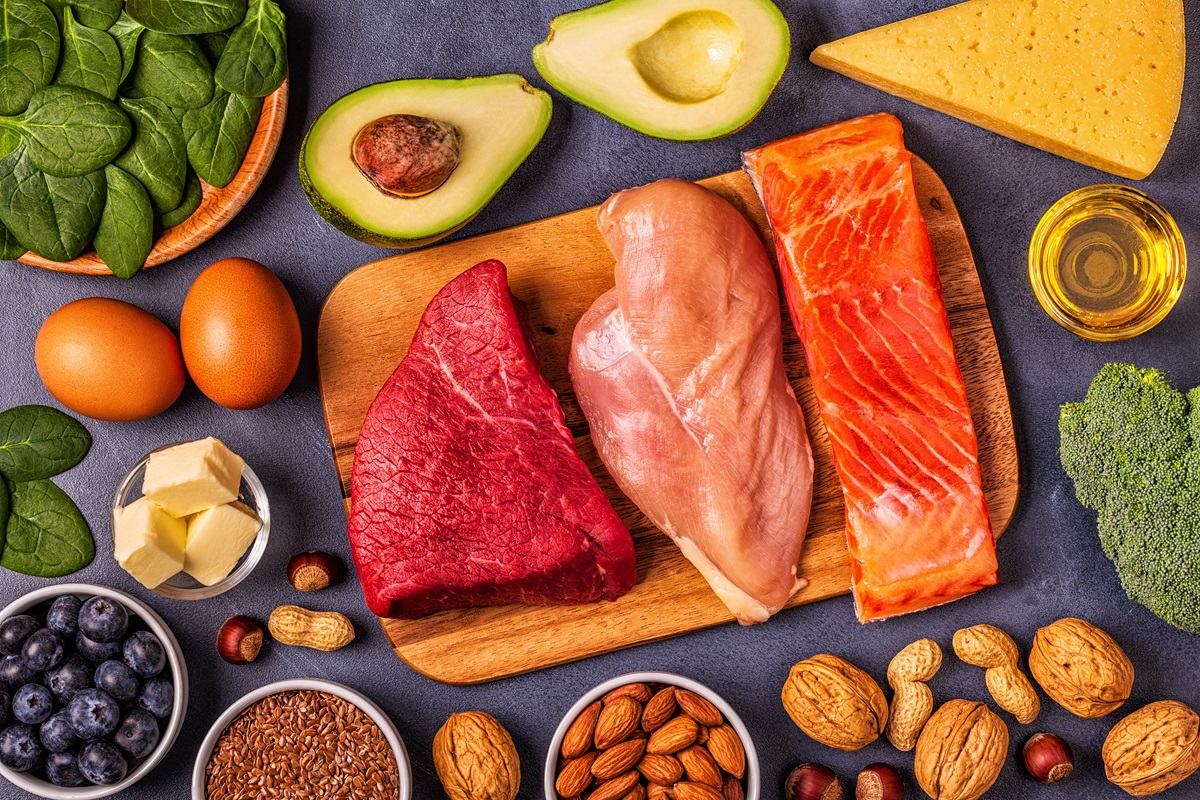Whether you’re just embarking on your fitness journey or you’re a seasoned athlete, the phenomenon of hitting a plateau can be equally frustrating for all. This common hurdle, where progress seems to stall despite consistent effort, is known as a fitness plateau. It’s a point at which your body has adapted to your current fitness regimen and no longer feels challenged. Overcoming plateaus is crucial for continuing to make fitness gains, regardless of your age group or level of fitness enthusiasm.
In this post, we’ll explore a variety of strategies to help you break through these plateaus and continue on your path to achieving your fitness goals. From altering your workout routines to fine-tuning your diet and understanding the importance of rest, we’ll guide you through practical steps to reignite your progress.

Hitting a Plateau: Why Does It Happen?
Before diving into solutions, it’s important to understand why plateaus occur. Essentially, they’re a sign that your body has adapted to your current workout regimen. This adaptation is a testament to your body’s incredible ability to become more efficient, but it also means you need to shake things up to keep making fitness gains.
Experimenting with Exercise Modalities
One pivotal strategy for overcoming plateaus and fostering fitness gains involves the diversification of your exercise regimen. Persistently engaging in the same activities allows your body to adapt, leading to a stagnation in progress. By introducing novel exercises or tweaking the intensity, volume or frequency of your workouts, you invite your body to confront fresh challenges, catalysing growth and improvement.
For instance, if your routine predominantly features strength training, consider integrating high-intensity interval training (HIIT) sessions. HIIT can elevate your cardiovascular fitness, enhance endurance and even aid in fat loss, contributing to a more holistic fitness profile. Similarly, experimenting with different strength training modalities, such as circuit training or plyometrics, can introduce your muscles to new stimuli, potentially unlocking further gains.
The Role of Cross-training in Fitness Development
Cross-training stands as a formidable approach to disrupt the monotony of a singular training focus and to ensure comprehensive fitness development. By blending various forms of exercise, such as weightlifting, cardio, swimming and yoga, you not only ward off boredom but also promote the balanced conditioning of different muscle groups. This holistic approach not only aids in overcoming plateaus but also minimises the risk of injury by preventing overuse of specific muscle groups and joints. Incorporating activities that differ in intensity and energy system demands can further enhance your body’s adaptability and resilience, paving the way for sustained fitness gains.
The Crucial Role of Rest and Recovery in Surpassing Plateaus

The Significance of Listening to Your Body
Overcoming plateaus isn’t solely about pushing harder or changing your workout routines; it’s equally about tuning into your body’s cues for rest and recovery. Ignoring these signals and venturing into the realm of overtraining can not only halt your progress but might also lead to regressions in your fitness achievements. Recognising the importance of rest days and adequate sleep is paramount for muscle repair, growth and overall recovery. Implementing a balanced training schedule that includes sufficient downtime ensures that your efforts in the gym are both sustainable and fruitful, allowing for consistent fitness gains over time.
Embracing Active Recovery
Active recovery plays a pivotal role in your rest days by promoting circulation, which aids in the repair and strengthening of muscles post-exercise. Engaging in low-intensity activities, such as leisurely walks, light cycling or gentle yoga, can help alleviate muscle stiffness and improve flexibility without overtaxing your body. This practice not only assists in maintaining a routine of physical activity but also enhances your overall recovery process, ensuring you’re primed for your next workout. Active recovery days are integral to overcoming plateaus, as they contribute to a well-rounded fitness regime that prioritises both exertion and recuperation.
By holistically approaching your fitness regimen—through the introduction of varied workouts, the integration of cross-training and the strategic implementation of rest and active recovery—you set the stage for continuous improvement. Overcoming plateaus and achieving sustained fitness gains demand a balance of pushing your physical limits while also granting your body the rest it requires to rebuild stronger.
Enhancing Nutritional Strategies to Overcome Plateaus and Achieve Fitness Gains

The Essential Trio: Proteins, Carbohydrates and Fats
In the realm of fitness and the quest for overcoming plateaus, nutrition emerges not just as a pillar but as a foundation. A well-rounded diet, rich in proteins, carbohydrates and healthy fats, is paramount for anyone looking to push past stagnation and continue making significant fitness gains. Proteins, the building blocks of muscle, are indispensable for repair and growth. Sources like lean meats, fish rich in omega-3 fatty acids, eggs and a variety of legumes should be staples in your diet. Carbohydrates are your body’s primary energy source, fueling your workouts and aiding in recovery. Opt for complex carbohydrates found in whole grains, fruits and vegetables to ensure a steady energy release. Fats, often misunderstood, play a vital role in hormone production and nutrient absorption. Focus on unsaturated fats from sources like avocados, nuts and olive oil to support your overall health and fitness goals.
Personalising Your Plate for Optimal Performance
Understanding the general principles of nutrition is one thing; applying them in a way that aligns with your specific fitness goals requires a more nuanced approach. For instance, if your aim is muscle gain, increasing your protein intake, coupled with a slight surplus in calories, may be necessary. Conversely, those focused on fat loss might prioritise a calorie deficit while still maintaining high protein levels to preserve muscle mass. The key is to tailor your nutrient intake to support your workouts and desired outcomes, ensuring your body has the right fuel to overcome plateaus and enhance fitness gains.
Hydration and Supplements: The Extra Mile for Fitness Gains

Hydration plays a critical role in not just survival but in optimising physical performance and aiding in recovery. Water is essential for regulating body temperature, lubricating joints and transporting nutrients to cells. A well-hydrated body performs better and recovers faster, making it a crucial element in overcoming fitness plateaus. Aim to drink at least 2-3 litres of water daily, adjusting based on your activity level and environmental conditions.
Navigating the World of Supplements
While a balanced diet should always be your primary source of nutrition, supplements can offer additional support in reaching your fitness goals. Whey protein is a convenient way to ensure you’re meeting your protein needs, especially post-workout. BCAAs (branched-chain amino acids) can aid in muscle recovery and reduce exercise fatigue. Creatine, one of the most researched supplements, has been shown to improve strength, increase lean muscle mass and help muscles recover more quickly during exercise. However, it’s crucial to approach supplementation with an informed perspective. Not all supplements are created equal and what works for one individual may not work for another. Consulting with a healthcare professional or a certified nutritionist can help you make informed decisions that align with your health needs and fitness objectives.
Crafting Your Plate: Meal Suggestions to Fuel Fitness Gains

Balancing Your Meals for Maximum Benefit
Crafting meals that support your fitness journey is essential for overcoming plateaus and achieving lasting fitness gains. A post-workout meal, for example, should aim to replenish energy stores, repair muscle tissue and reduce inflammation. A balanced plate featuring grilled chicken breast (for protein), sweet potatoes (for complex carbohydrates) and a side of steamed broccoli or spinach (for vitamins and minerals) can provide a comprehensive range of nutrients needed for recovery. Incorporating a variety of colourful vegetables and whole grains into your meals not only ensures a broad spectrum of nutrients but also keeps your meals interesting and flavourful.
Proceeding with Caution: The Importance of Mindful Advancement

Mindfulness in Training and Nutrition
While dedication to both your training and nutrition is commendable, it’s paramount to proceed with mindfulness. Overtraining and neglecting your body’s signals can lead to injuries and setbacks, undermining your efforts to overcome plateaus. Nutrition, much like training, should not be about extremes but about finding a balance that supports your body’s needs. Listening to your body, adjusting your nutritional intake as your training demands change and seeking professional advice when necessary can ensure your path to fitness gains is both effective and sustainable.
Conclusion for Overcoming Plateaus and Keep Making Fitness Gains
Overcoming plateaus is an integral part of the fitness journey, offering an opportunity to reassess and adjust your strategy for continued progress. By varying your workouts, prioritising rest and focusing on nutrition, you can push past these hurdles and keep making significant fitness gains. Remember, every plateau is a stepping stone to greater strength, endurance and overall health. Stay motivated, stay flexible and most importantly, enjoy the journey.
